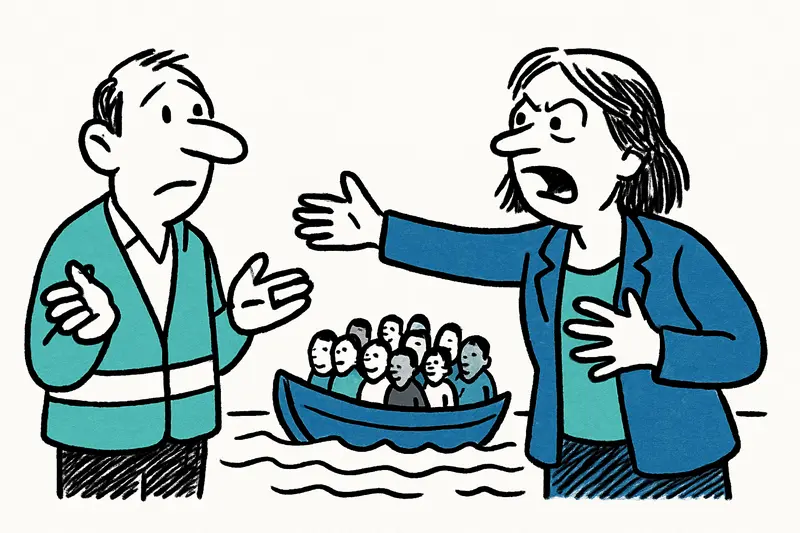The Balearic Islands are sounding the alarm: dramatically increased sea arrivals are straining the islands, reception facilities, and municipalities. Brussels must do more now.
The islands under pressure — a plea for help from Palma
It's not just a statistic to set aside. Since the start of the year, hundreds of boats have arrived at Mallorca's coasts, totaling around 6,030 people — spread across about 327 landings. For a region with limited resources, this is noticeable: overcrowded reception facilities, full youth homes, and municipalities that must organize beds and meals at short notice.
What the government is demanding
The president of the Balearic government has urged Brussels for support. It concerns two things: more staff at the borders and help in accommodating vulnerable people, especially unaccompanied minors. The demand to the EU is clear: concrete steps, not just words.
More precisely, the island representations are seeking increased deployments of the European Border and Coast Guard Agency, additional air and sea surveillance, and more transparent information flows — i.e., access to flight and maritime operation logs, so arrivals can be coordinated more quickly. On the ground I often hear: “We need planning certainty, not weekend surprises.”
The numbers and everyday life
The development is rapid: The route between North Africa and the Balearics has recently shown clear growth — in some months almost double-digit increases compared to the previous year. Also notable is the change in origin countries: while in the past mainly people from the Maghreb came, now many refugees come from countries south of the Sahara.
In Portixol volunteers say they lay out blankets at night on the beach and in the morning refill thermos flasks with coffee. In Cala Mayor blankets and diapers pile up because arrivals are often unpredictable. This is not an abstract crisis — it is work late into the night for volunteers and social services.
Madrid, Brussels and the next steps
The central government emphasizes that Frontex is already more active in the western Mediterranean — including air surveillance. The Balearics, however, demand more clarity about what exactly has been done and where help is still lacking. It also concerns finances: city and island councils say they do not have the necessary funds to adequately house unaccompanied minors.
Realistically, there will be no quick, easy solution. The situation requires coordination: clear responsibilities, more personnel on land and at sea, and above all a network that stretches from Palma to Madrid and Brussels. Otherwise, as local representatives warn, a social and humanitarian problem will threaten that goes beyond individual arrivals.
By the way: If you walk along the coast, you see the echo of this debate right beside the promenade cafe — volunteers, tired but determined. Conversations are held, lists are drawn up, transport organized. A slice of everyday life that you would hardly see at an EU conference.
Similar News

Anxieties in Sa Casa Blanca: Planned Ammunition Depot at Palma Airport Sparks Unrest
Residents of Sa Casa Blanca are unsettled: The air force plans a depot for rockets and bombs next to the civilian area o...
Palma Takes Action: Son Banya to Be Evicted – Court Confirms Municipal Ownership
A court awarded Palma the Son Banya site and ordered its eviction. For residents and neighbors, this ends a legal patien...

Palma bans new holiday rentals, hostels and party boats — what this means for residents
The city of Palma will stop issuing new tourist rentals, but existing licenses will remain valid, and it will also ban n...

Weapons Depot at Son Sant Joan Airport — Drones, Missiles and the Mallorca Debate
A semi-subterranean depot for bombs and missiles is being built in the airport's military area. Residents and politician...

Madrid seeks an ammunition depot at Palma Airport – Protests and doubts on Mallorca
Plans from Madrid spark unrest: A bombproof bunker is to be built on the Son Sant Joan military site. Politicians and re...
